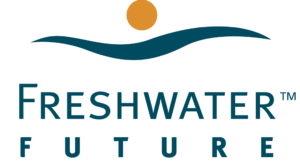Urgent Action: Proposed Energy Bill Would Harm the Great Lakes – Call + Email your Senator Today
Oil and gas development will get a green light for permits if the Energy Permitting Reform Act of 2024 is adopted. Your help is needed now to prevent this harmful bill from moving forward. Please call and email your senator to urge them to vote NO on the Energy Permitting Reform Act of 2024. Now that the Senate is back in session, it is important that your senator hears from you. Thank you to the nearly 500 people who have taken action so far! Check out our new Talking Points with Great Lakes and freshwater specific concerns to raise with your senator today!

Thank You to All Our Supporters – Walk, Paddle, and Roll Was a Success!
With your support, we raised over $2,000 for the Great Lakes! Freshwater Future staff, family, and friends committed to getting out in our beautiful natural communities in order to raise these funds, and you made it possible – thank you! It’s not too late to donate, your donation is welcome anytime and always makes a difference! Your generous donations are already being used to support on-the-ground water protection, keep residents informed of threats to their waters, and push policy solutions that protect our drinking water and waterways.

Detroiters: Recertify Your Lifeline Benefits Now!
Detroit’s Lifeline Plan, a water bill assistance program, is set to expire on October 1, 2024. To prevent any disruption in service, it’s crucial to recertify now! To recertify, you will need proof of household income and documentation for any changes in the size of your household. Please share this information with your friends and family so that everyone who needs assistance can keep it!
Contact Wayne Metro with any questions or concerns:
- Phone: (313) 388-9799
- Email: wmuniversalapplication@waynemetro.org
- Walk-in Office: 7310 Woodward, Suite 113, Detroit, MI, Mon-Fri 8:30 AM – 5:00 PM
Harmful Algal Blooms on the Rise in Wisconsin: What You Can Do
Harmful Algal Blooms (HABs) are increasing across Wisconsin’s lakes, including Lake Superior, posing health risks to people and wildlife. These blooms often appear as green or blue scum. To stay safe, avoid swimming or recreating in water with visible scum. The Wisconsin Department of Natural Resources (DNR) has received 195 reports of blooms this year, surpassing last year’s total. HABS were reported in Lake Superior in the Duluth-Superior area and the Apostle Islands National Lakeshore. Lake Winnebago and parts of the Wisconsin River basin are particularly vulnerable due to nutrient runoff from farms and lawns. Last year, HABs were reported in October, so it is important to be aware of potential blooms. Wisconsin residents can report suspected blooms by emailing DNRHAB@wisconsin.gov and report bloom-related illnesses through the state’s online survey. Reducing nutrient pollution from agricultural and other sources must be a priority to protect the health of the waters. We’ll keep you posted on opportunities to speak out about this important issue.

Water Privatization Costs Ontario Pensioners 1 Billion Dollars
The privatization of Thames Water in London, UK, once heralded as a triumph of market-driven policies, has led to financial and environmental disaster. The company, burdened with billions in debt, has been fined $175 million for sewage dumping all while hiking up customer water rates. Beyond ratepayers, Ontario’s OMERS pensioners are also paying the price of privatization. The Omers fund, the private utilities’ largest investor, wrote off a $1 billion investment and the Bank of Montreal sold debt at a loss. The company’s mismanagement highlights the risks of privatization, as the UK government now considers nationalizing it to manage its $26 billion debt. Freshwater Future and our partners remain opposed to privatization as it continues to threaten the Great Lakes region on both sides of the border. Our mission to ensure safe, clean, and affordable water also means ensuring municipalities maintain control of essential water services. The cautionary tale of Thames Water reminds us that privatization prioritizes profit over public welfare and that by keeping water public, we safeguard vital resources.








